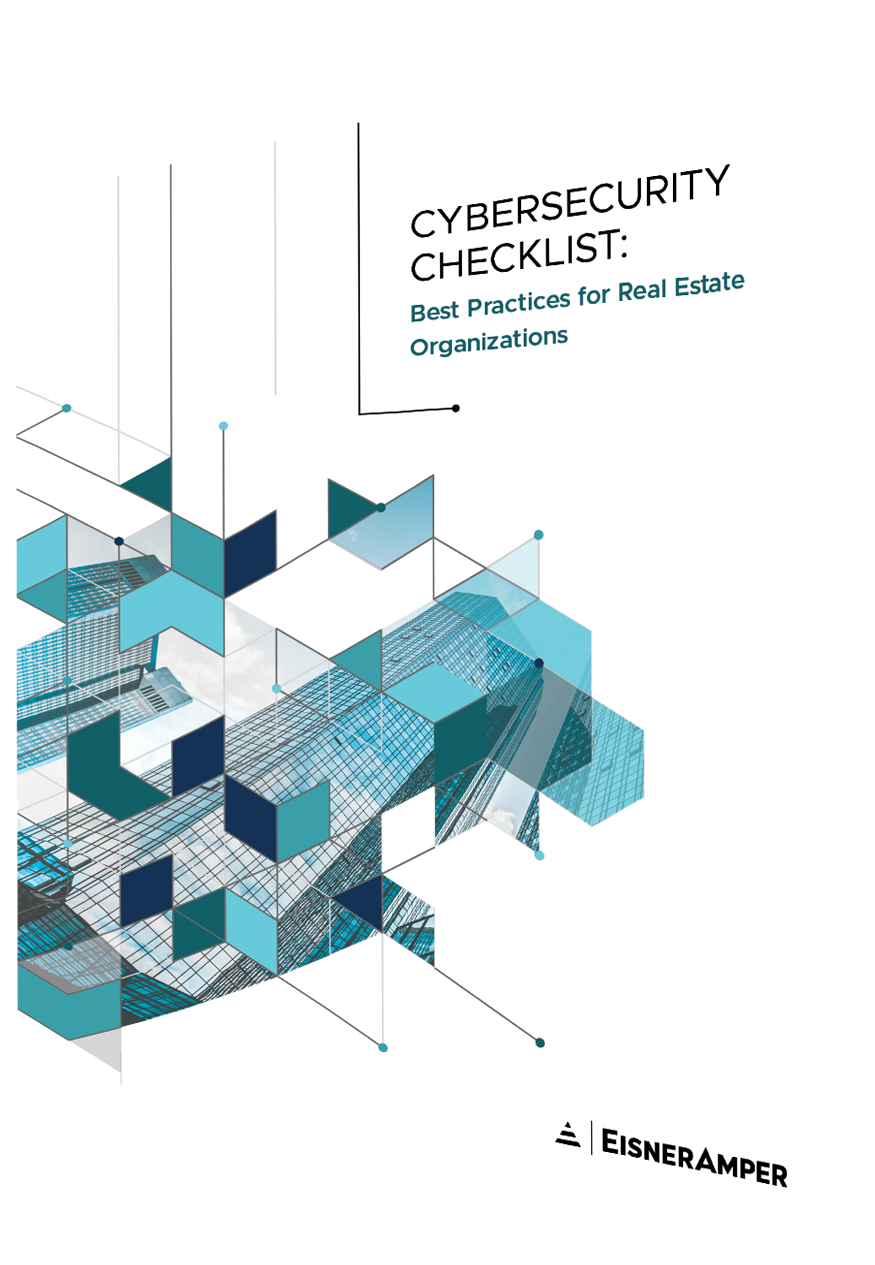Cybersecurity Best Practices for Real Estate Organizations
Cyberattacks are an increasing threat to real estate organizations as the industry evolves through the use of technology and information.
Robust cybersecurity strategies can help real estate organizations protect sensitive data and prevent potential financial loss, legal implications, and reputational damage when cyberattacks occur. By prioritizing real estate data security, you can mitigate these risks and foster trust amongst tenants and investors.

At EisnerAmper, we understand the increasing threat of cyberattacks on real estate organizations. Our goal is to empower you with the knowledge and tools to safeguard your business.
Learn how to improve your real estate data protection and prevent cyber threats with actionable steps in our e-book, Cybersecurity Best Practices for Real Estate Organizations.
Key Cybersecurity Challenges for Real Estate Organizations
This comprehensive guide addresses common cybersecurity concerns for the real estate industry, including:
- Why do cyberattacks happen?
- How can you strengthen your real estate organization’s cybersecurity and protect your data?
- What are some common real estate cybersecurity threats?
- What is the importance of an incident response plan?
- How should you prepare for a cyberattack?
Our Cybersecurity Best Practices for Real Estate Organizations e-book provides practical guidance to improve your cybersecurity.
Discover how to protect your real estate organization from cyber threats.
EisnerAmper needs the contact information you provide to us to contact you about our products and services. You may unsubscribe from these communications at any time. For information on how to unsubscribe, as well as our privacy practices and commitment to protecting your privacy, please review our Privacy Policy.